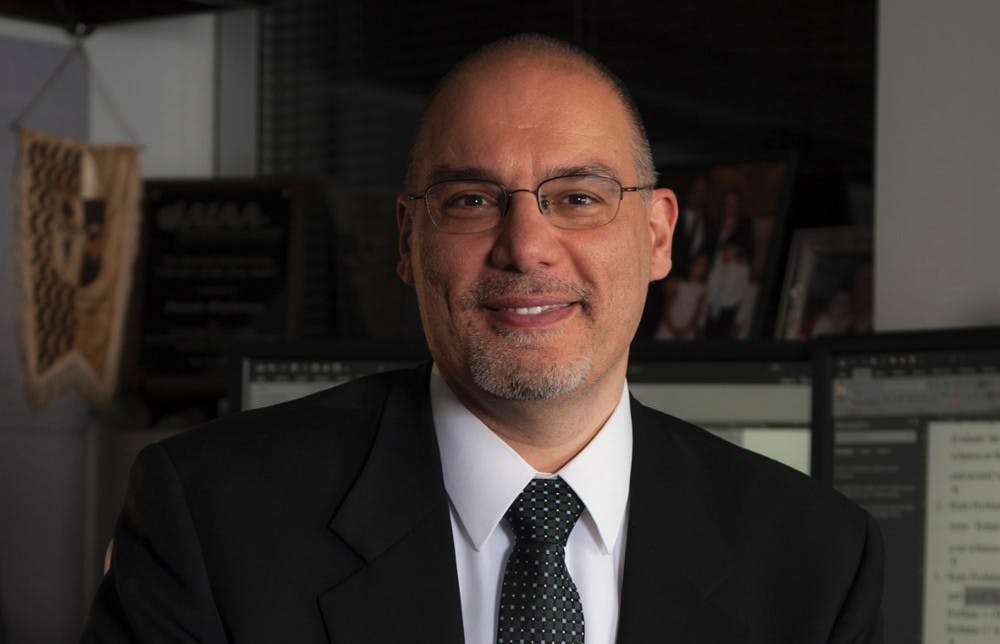On Monday, Oct. 21, Auburn University and faculty members James Goldstein and Lawrence Teeter filed an answer to a pending lawsuit brought against them by Joseph Majdalani, a professor in the university’s aerospace engineering department. In their answer, the university and the related defendants denied the most relevant charges. The lawsuit remains pending and unanswered by an additional five defendants, most of whom are Auburn University administrators.
The lawsuit was originally filed in 2018, over six years before the recent answer, and it alleges, in part, various First Amendment, civil conspiracy and defamation claims. As the judicial process has proceeded, this original complaint has been altered twice.
In his Second Amended Complaint, Majdalani most significantly asserts that members of the Department of Aerospace Engineering and university administration, motivated by racial prejudice, conspired to have him defamed and fired for engaging in constitutionally protected associative activities.
From these events, Majdalani alleges 11 counts of action against nine defendants.
In his claims related to the infringement of his rights to association, Majdalani alleges that university officials improperly acquired his scorecards from a student competition hosted by the American Institute of Aeronautics and Astronautics or AIAA. He asserts that the defendants used these scorecards to claim he had behaved unethically by grading Auburn University students in a conflict of interest.
Majdalani’s Second Amended Complaint states, “Dr. Majdalani’s association with the AIAA as a judge and his related associative activities, i.e. speech, were each a substantial motivation for the retaliation he experienced at the hands of the individual defendants.”
Majdalani additionally provided communication in which AIAA officials renounced the defendants’ actions regarding the scorecards.
In one such letter, the AIAA executive director states, “… AIAA feels that Dr. Majdalani’s scores, which were released without AIAA’s knowledge or permission and are being evaluated out of context, are well within the normal variation experienced and not anomalous or unusual.”
Still, according to the suit, disciplinary university proceedings in 2018 recommended that Majdalani be terminated because of his scoring at the AIAA competition. However, this recommendation was reversed by then-university President Steven Leath upon Majdalani’s appeal to him.
The administrators sued by Majdalani were sued in their individual capacities, and some were additionally sued in their professional capacities. The individuals and institution Majdalani brought his complaint against are listed below, including the additional professional capacities they were sued under, if any:
· Auburn University
· Steven Leath, sued individually and as then-Auburn University president
· William Hardgrave, sued individually and as then-provost of Auburn University
· Timothy Boosinger, sued individually
· John Winn, sued individually and as then-associate provost of Auburn University
· Chris Roberts, sued individually and as then-dean of the Samuel Ginn College of Engineering
· Brian Thurow, sued individually and as then-chair of Auburn University’s aerospace engineering department
· James Goldstein, sued individually
· Lawrence Teeter, sued individually
The defendants first sought to dismiss most of the suit on claims of qualified immunity. This defense asserts that the university and its officials are exempt from liability for their actions because they were acting within their authority as university administrators.
The motion to dismiss, in which the defendants make this argument, states, “Majdalani’s lengthy and convoluted Second Amended Complaint is due to be dismissed in part because most or all the Individual Defendants are shielded by either sovereign or qualified immunity and because the Second Amended Complaint fails to state claims which could entitle him to relief.”
In response to this original motion to dismiss, the first court order outlining which parts of the suit would proceed was processed on Sept. 7, 2022. In this ruling, Magistrate Judge Jerusha Adams partially accepted the defense but allowed many key parts of the complaint to go forward. Significantly, the claims against Stephen Leath were dismissed entirely.
Defendants Boosinger, Hardgrave, Roberts and Winn appealed this decision to the 11th Circuit Court of Appeals in Atlanta, which, on Aug. 31, 2023, remanded the order back to the district court for reconsideration, asserting that the lower court had failed to evaluate the qualified immunity claim properly. The issue the appellate court pointed to in the original ruling centered around Adams’ failure to assess immunity claims before considering potentially unlawful conduct.
The 11th Circuit ruling specifically said, “The qualified immunity defense shields government officials performing discretionary functions from liability for civil damages insofar as their conduct does not violate clearly established statutory or constitutional rights of which a reasonable person would have known”.
It added, “… the magistrate judge failed to "strip out" the allegedly illegal conduct.”
Adams then provided her revised decision on Sept. 26, 2024. The new order acknowledged the “stripping out” of illegal conduct in evaluating qualified immunity claims and again partially granted and denied the defendant’s immunity claims.
In the intervening six years between the original complaint filed by Majdalani and the recent answer from Auburn University and the individuals charged, significant changes have altered the profile of the case, particularly Chris Robert’s promotion to Auburn University President.
“Auburn University does not comment on pending litigation,” Jennifer Adams, Auburn University’s Executive Director of Public Affairs, said in an e-mail when asked for comment on the case.
Chris Roberts and the other four defendants who have not yet answered the complaint are expected to respond in the coming days.
UPDATE: Oct. 30, 2024, 11:00 a.m.: On Oct. 25, 2024, the defendants who had not answered the complaint at the time of original publication — Hargrave, Boosinger, Winn, Roberts, and Thurow — filed a notice of appeal to the 11th Circuit Court in Atlanta.
The Plainsman will continue to report on this ongoing case.
Do you like this story? The Plainsman doesn't accept money from tuition or student fees, and we don't charge a subscription fee. But you can donate to support The Plainsman.





